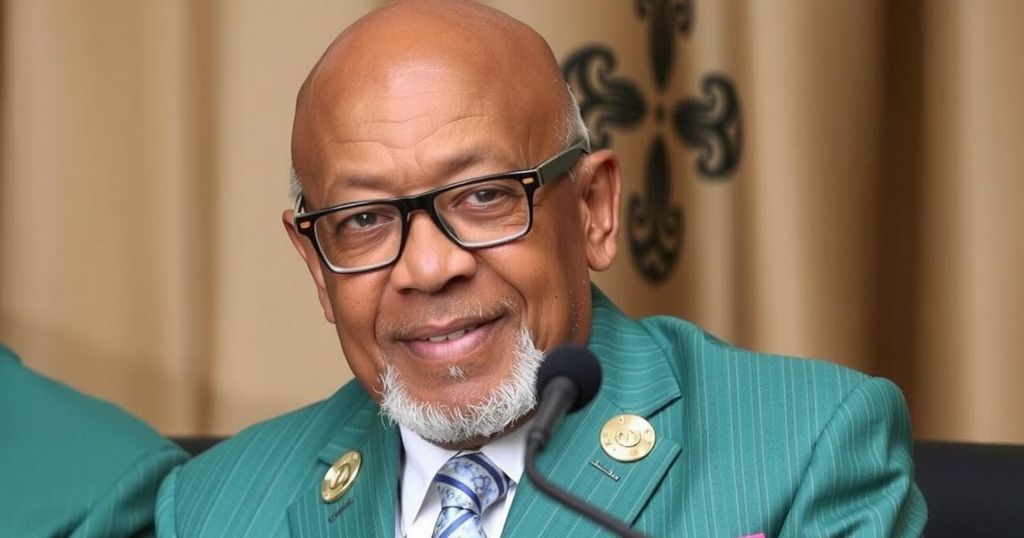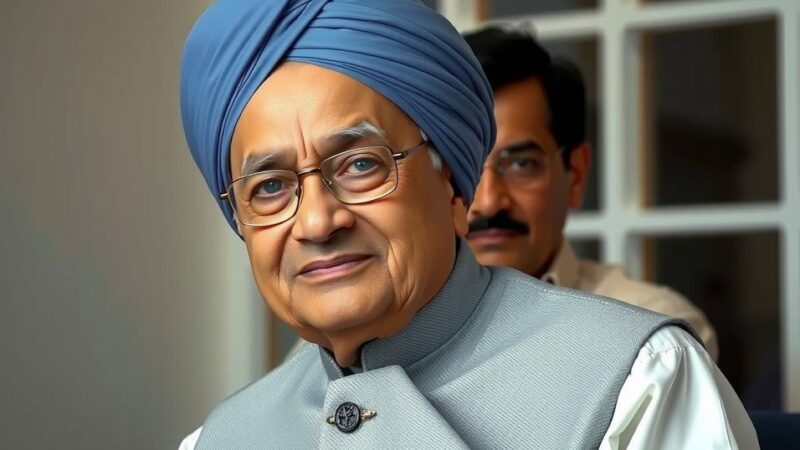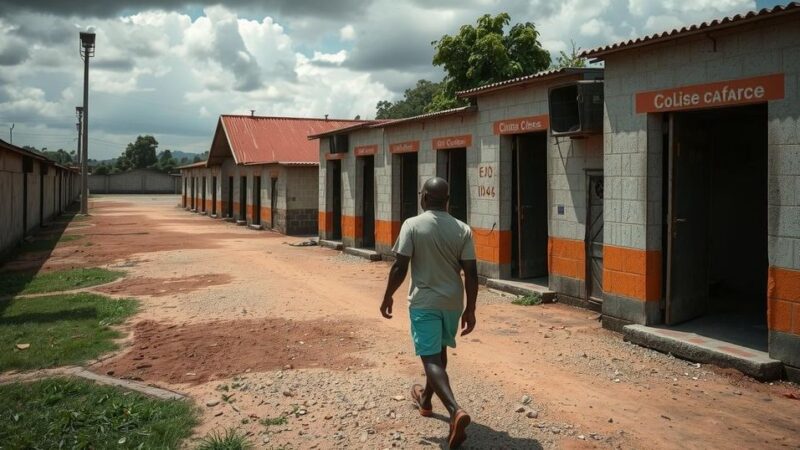Desi Bouterse, the former president of Suriname, died at 79 after a brief illness. His passing, confirmed by close associates, occurred at his residence, with his body taken to Paramaribo. A controversial figure, Bouterse came to power in a military coup in 1980 and faced ongoing legal troubles, including a conviction for human rights abuses related to the 1982 executions of 15 men.
Desi Bouterse, the former president of Suriname, has passed away at the age of 79 after a brief illness, as confirmed by reliable sources. His death occurred at his residence, with his body subsequently transported to Paramaribo, the capital city. Although his family has not publicly announced the news, many members of his National Democratic Party (NDP) and close associates have acknowledged his passing, gathering at the party headquarters in Geyersvlijt for comfort during this difficult time.
Bouterse rose to power on February 25, 1980, when he and 15 soldiers executed a coup against the democratically elected government of Henck Arron. Initially, this coup garnered substantial support from segments of society and leftist political factions. He maintained control as the de facto head of government until the elections of November 25, 1987, when an opposition alliance led by Arron won decisively.
Despite this electoral defeat, Bouterse retained significant influence, continuing as the commander of the National Army. On December 24, 1990, he orchestrated another coup following tensions with President Ramsewak Shankar. This coup involved the army leveraging a show of force, including threats to the Presidential Palace. Subsequently, Johan Kraag was made president, backed by key political allies.
The NDP faced defeat again in the 1991 elections, leading to Ronald Venetiaan’s presidency. However, Bouterse’s party returned to power in 1996 due to a political realignment involving former coalition partners. Bouterse’s proxy, Jules Wijdenbosch, became president and faced significant public dissent, prompting early elections. It was not until 2010 that Bouterse reclaimed the presidency, later winning re-election in 2015.
Throughout his political career, Bouterse faced serious legal challenges. He was convicted for his role in the December 8, 1982, executions of 15 individuals, receiving a 20-year prison sentence. He had since been evading justice, having been placed on INTERPOL’s Red Notice list to facilitate his apprehension. Police recently conducted operations at his residence but found no trace of him.
Bouterse’s controversial legacy remains intertwined with his past actions, underlining the complex and often tumultuous political landscape of Suriname.
Desi Bouterse was a significant figure in Surinamese politics, known for his military coup in 1980 that overthrew the democratically elected government. His rule marked numerous political upheavals, including repeated coups and shifts in power. Despite electoral defeats, he maintained influence through military dominance and strategic political alliances. Bouterse’s tenure was marred by legal issues and allegations related to human rights abuses, particularly the infamous December murders, which led to his conviction and subsequent attempts to evade prosecution, reflecting the tumultuous nature of Buroutse’s leadership and Surinamese politics as a whole.
The death of Desi Bouterse marks the end of a contentious era in Surinamese politics, characterized by his controversial rise to power and the significant impact of his military and political actions. His legacy is complicated by his conviction for human rights violations, illustrating the deep divisions within Suriname regarding its political history. As members of his party grieve and reflect on his life and influence, Bouterse’s passing also serves as a moment of contemplation for the future of Surinamese governance in the wake of his tumultuous leadership.
Original Source: www.guardian.co.tt







